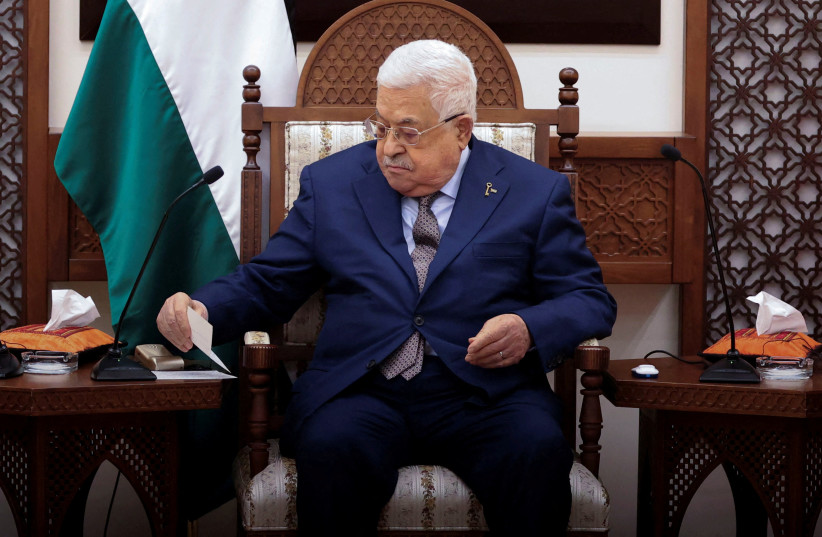On Friday, the US State Department said it welcomed the nomination of a new Palestinian Authority cabinet, a day after Palestinian Prime Minister Mohammad Mustafa announced he had formed a new cabinet in which he will also serve as foreign minister.
“The United States looks forward to working with the new cabinet to promote peace, security, and prosperity and will be engaging this new government to deliver on credible reforms,” State Department spokesperson Matthew Miller said. “A revitalized PA is essential to delivering results for the Palestinian people in both the West Bank and Gaza and establishing the conditions for stability in the broader region.”
Under pressure from the US and the international community, the last prime minister, Mohammad Shtayyeh, resigned in February. Mustafa was appointed in his place by PA President Mahmoud Abbas earlier in the month, with a mandate to “reform and revitalize” the PA.
The Biden administration called for “revitalizing” the PA so that it can also administer the Gaza Strip once the Israel-Hamas war ends. But just last week, administration officials maintained they would reserve judgments on new PA members until they see the government’s actions. The PA is also said to be in the final stages of talks with the administration about reforming its controversial welfare policy, which includes a “pay-for-slay” or “martyr payments” program for terrorists and their families.

So what’s changed? A few things.
Firstly, the US has made it clear to Israel that although it still supports the war against Hamas, it will no longer give the Jewish state carte blanche. It made this clear in public statements against the Israeli government’s plan to expand its military operation in Rafah and its abstention (rather than veto) on the UN Security Council ceasefire resolution last week.
Secondly, although Abbas initially dismissed the idea of PA rule in Gaza at the beginning of the current war, he appears to be changing his tune. The PA, it should be recalled, ruled in Gaza until being pushed out by Hamas in 2007.
Thirdly, it is possible that Prime Minister Benjamin Netanyahu, who has consistently voiced his opposition to the PA retaking Gaza, is rethinking his position in the wake of US insistence that there’s no one else that could do the job if Israel does not plan to reoccupy the territory. Netanyahu has signaled that he favors a new technocratic leadership in Gaza as an alternative to the PA.
Finally, Hamas rejected the new Palestinian government as “illegitimate,” calling instead for all Palestinian factions to form a power-sharing government ahead of new elections, which have not taken place in 18 years.
Mahmoud Abbas retains final say
Abbas – now 88 – retains ultimate power and still reserves the right to have the final say on any moves Mustafa makes. Former US envoy Dennis Ross was quoted by Politico as saying, “Mohammad Mustafa is not someone who sends a message of reform.”
Mustafa presented his new government to Abbas with lightning speed last week. It comprises 23 ministers, including ministers from Gaza. The best-known of them is Sharhabeel al-Zaeem, who holds the justice portfolio. While he kept the portfolio of foreign minister for himself, he created a Ministry of State for Foreign Affairs and Expatriates for Dr. Varsen Aghabekian, gave the Ministry of Interior to Ziad Hab al-Reeh, the Ministry of Finance to Omar al-Bitar, and the Ministry of Jerusalem Affairs to Ashraf al-Awar. He also created a Ministry of State for Relief Affairs to focus on the Gaza Strip.
According to The Media Line news agency, the new government’s program confirmed that its political reference is the Palestine Liberation Organization and that it will follow and respect all previous agreements signed by the PLO. A PA official told The Media Line that Mustafa’s new government has regional, American, and European approval and that “meeting US approval was essential.”
Still, Mustafa and his cabinet have a long road ahead to prove to the US, Israel, and the rest of the world that they are serious about taking the PA in a whole new direction. They could start by publicly distancing themselves from Hamas terrorism while expressing their readiness to continue security coordination and conduct peaceful dialogue with Israel.
